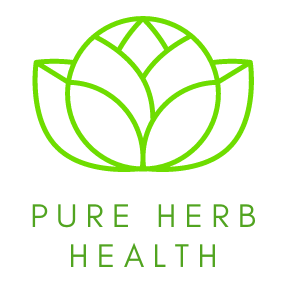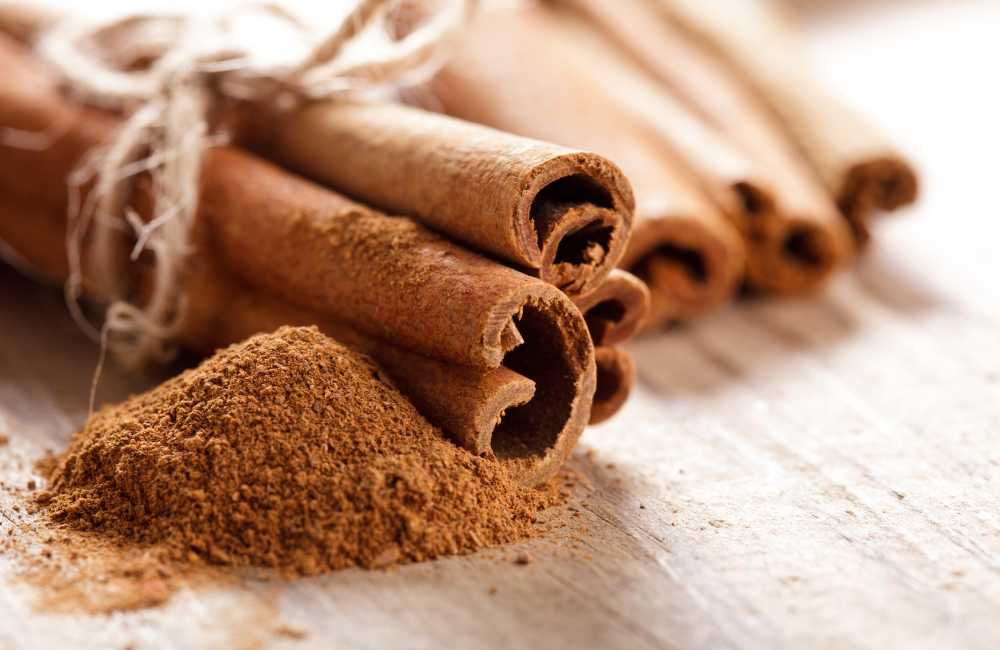Cinnamon isn’t just for your baked goodies. Let us talk about how it affects your health. At the end of this article, you will be able to know the type to choose that will be of maximum benefit to your health with fewer side effects and possible ways to use it. Let us have a look first at its origin.
Cinnamon is a spice that comes from the branches of trees of the Cinnamomum family. It is native to the Caribbean, South America, and South Asia. It is referred to as “kwai” in the Chinese language and component of the anointing oil used by Moses in the bible for anointment (to make a person holy) as mentioned in the bible.
It was also used in Roman funerals to fend off the odour of dead bodies. In Egypt, it was used for embalming mummies as well as for its fragrance and flavouring properties, especially in cooking.
Cinnamon has been used since 2000 BC in Ancient Egypt where they regarded it highly. In medieval times, doctors used it to treat some health conditions. It is now the second most popular spice, after black pepper, in the United States and Europe.
As a spice, it is available as whole barks in quill-like pieces or powdered form (of the barks). It can also be used in form of essential oil and supplements.
Types of Cinnamon
There are mainly four types:
- True cinnamon or Ceylon cinnamon or Mexican cinnamon (Cinnamomum zeylanicum)
This type of cinnamon originated from Sri Lanka and is slightly sweet, light to medium reddish brown and lowest in coumarin content.
- Indonesian cinnamon (Cinnamomum burmanni)
This is originally from Indonesia, very spicy, dark reddish brown in colour, cheap, high in coumarin content and has a strong aroma.
- Vietnamese cinnamon (Cinnamomum Loureiro)
This originated in Vietnam. It is spicy and sweet, dark reddish brown has a strong aroma and is high in coumarin content.
- Cassia cinnamon or Chinese cinnamon (Cinnamomum aromaticum)
This is directly from China, spicy but bitter, dark reddish brown, very strong taste and is high in coumarin content. This is also referred to as “regular” cinnamon and is the commonly used type since it is cheaper.
Based on the appearance of the quill, it is possible to differentiate Ceylon cinnamon from others. It is softer and lighter in colour and rolled in layers whereas the others are darker, hard, hollow and rolled in only one layer.
Even though very expensive, Ceylon cinnamon is preferred due to its ultra-low coumarin levels and the mild delicate taste.
Countries That Export Cinnamon
It is exported as cinnamon quills from four main countries namely: Indonesia, China, Vietnam and Srilanka. The quills are made by peeling the bark and then rolling it into pipes.
Phytochemical Components of Cinnamon Bark
Phytochemicals are the bioactive compounds in the bark. These largely contribute to most of the activities it exhibits when consumed for health purposes.
It has been established that the extracts of the bark in different solvents showed that it contains alkaloids, flavonoids, terpenoids, anthocyanins, coumarins, tannins, glycosides, polyphenols and saponins.
Different oils obtained from this interesting plant yield different constituents:
- Cinnamaldehyde (contained in the bark oil). This is thought to be responsible for most of cinnamon’s health benefits.
- Eugenol (contained in the leaf oil)
- Camphor (contained in the root-bark oil)
- Trans-cinnamyl acetate (this is contained in the fruits and flowers)
Let us now explore some of the health benefits of cinnamon. It is worth noting here that care should be taken when choosing the barks that you want to use. The best is the Ceylon cinnamon, also referred to as the “true” cinnamon. This is because of its low content of coumarin which is responsible for causing liver damage and affecting coagulation when consumed in large quantities.
Health Benefits of Cinnamon
-
Impact on Blood Sugar Level
Cinnamon is well known for its blood sugar-lowering properties and this can be achieved in several ways as can be seen below:
-
- It can improve sensitivity to the hormone insulin which is one of the key hormones that regulate metabolism and energy use.
Insulin is also essential for transporting blood sugar from your bloodstream to your cells. The problem is that many people are resistant to the effects of insulin. This is known as insulin resistance, which in effect leads to metabolic syndrome and type 2 diabetes.
Cinnamon comes in handy to reduce insulin resistance, helping this important hormone to do its work thereby bringing about the lowering of blood sugar levels.
-
- This herb has been shown to decrease the amount of glucose that enters your bloodstream after a meal. It achieves this by interfering with numerous digestive enzymes, which slows down the breakdown of carbohydrates in your digestive tract.
- A compound in it can act on cells by mimicking insulin. This action improves glucose uptake by your cells though slower than insulin.
Taking half a teaspoon to two teaspoons of cinnamon per day has been shown to give lower fasting blood sugar by at least 10% to about 29%.
-
Cognition Enhancer
It contains phytochemicals which boost the brain’s ability to utilize glucose thereby improving the cognitive function of the brain. It may have beneficial effects on neurodegenerative diseases which are characterized by progressive loss of the structure or function of the brain cells.
Alzheimer’s and Parkinson’s disease are two of the most common types. Two compounds found in cinnamon appear to inhibit the buildup of a protein called tau in the brain, which is one of the hallmarks of Alzheimer’s disease.

-
Cancer Prevention
Cancer is characterized by uncontrolled cell growth in any organ of the body it happens to attack. Cinnamon has been widely studied for its potential use in cancer prevention and treatment. It is suggested that it may act by reducing the growth of cancer cells and the formation of blood vessels in tumours and appears to be toxic to cancer cells, causing the death of the cancer cells. More research is needed on human beings.
-
Anti-microbial Agent
The cinnamaldehyde component is responsible for its antimicrobial activity. Cinnamon helps fight both bacterial and fungal infections. The antimicrobial effects may also help to prevent tooth decay and reduce bad breath.
-
Anti-Inflammatory Agent
Long-term inflammation increases the risk of chronic diseases. Studies have shown that cinnamon helps in reducing inflammation.
-
Improves Cardiovascular Health
Various compounds present in this herb may be of benefit to the cardiovascular system. Cinnamaldehyde was shown to lower blood pressure in animal tests.
It was also shown that the active components cinnamaldehyde and cinnamic acid are cardioprotective due to their ability to produce nitric oxide as well as the associated anti-inflammatory property.
Its vasorelaxation effect has also been attributed to the cinnamaldehyde component which inhibits L-type calcium channels.
-
Lowers Lipid Profile
Cinnamon has been shown to have a lipid-lowering effect but further studies are needed.
-
Antioxidant
Cinnamon is loaded with powerful antioxidants such as polyphenols. Antioxidants protect the body from oxidative damage caused by free radicals. The antioxidant effect is so powerful that it can be used as a natural food preservative.
Effects of Consuming Too Much Cinnamon
- Liver damage
When too much is consumed, it can lead to liver toxicity and damage. Cassia cinnamon is implicated in this more than its Ceylon counterpart (true cinnamon) as its coumarin content may range from 7 to 18mg/teaspoon while Ceylon cinnamon only contains trace amounts of coumarin.
- Risk of Cancer
It has been shown that eating too much coumarin may increase the risk of certain cancers. The way coumarin causes tumours are unclear but some researchers attributed it to DNA damage over time thereby increasing the risk of cancer.
- Mouth Sores
Some persons reported having mouth sores after eating products that contain cinnamon as a flavouring agent. The cinnamaldehyde component of cinnamon may be responsible for triggering an allergic reaction when consumed in large quantities. However, small amounts of cinnamon spice don’t seem to cause any problems.
In addition to mouth sores, other symptoms of cinnamaldehyde allergy include:
-
- Tongue or gum swelling.
- A burning or itching sensation.
- White patches in the mouth
These symptoms may not be that serious but they can cause serious discomfort.
- Risk of low Sugar
Eating a bit of this herb helps to lower blood sugar but when eaten in excess, may cause the blood sugar level to fall too low and this is known as hypoglycemia, especially in those taking medications that equally lower the blood sugar.
- Breathing Problem
Eating too much ground cinnamon in a single sitting has the potential of causing breathing problems. This is mostly due to the fine texture of the powder that makes it easy to be inhaled accidentally thereby causing coughing, gagging, and difficulty when catching a breath.
Cinnamaldehyde in cinnamon is a throat irritant and may cause further breathing problems. Asthmatic persons or other persons with medical conditions that can affect breathing should always exercise caution so as not to accidentally inhale the cinnamon powder.
Interaction of Cinnamon and Some Medications
When cinnamon is used for culinary purposes in a minimal amount, it does not interact with any drug but when being taken in large amounts, it may interact with certain medications either by enhancing their effects or worsening their side effects.
The risk of liver toxicity and damage is increased if you are taking Cassia cinnamon (which contains a high amount of coumarin) in large quantities when you are taking the medications listed below:
- Paracetamol
- Statins (drugs used to control cholesterol levels in the body)
The risk of hypoglycemia (low blood sugar) is increased when cinnamon is taken with medications for diabetes like metformin(Glucophage)
Conclusion
Cinnamon is healthy, delicious and spicy and can be used either for its health benefits or culinary purposes but should never be used to replace your prescription medicine without contacting your doctor.
Both Ceylon and cassia cinnamon are healthy and delicious but if you usually consume large amounts of cinnamon or you want to take it as a supplement, it is advisable to avoid cassia because of its high content of coumarin.
Choose safety, choose Ceylon! Thank You!

